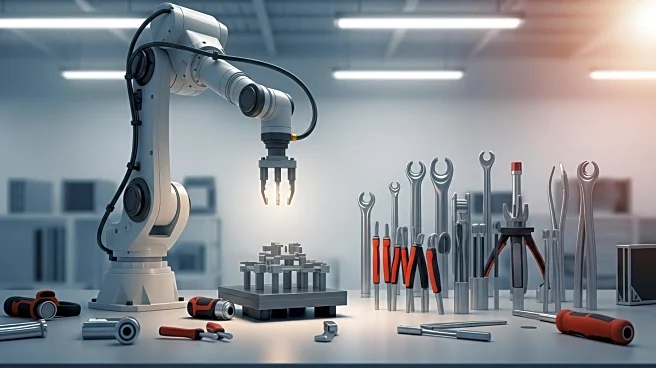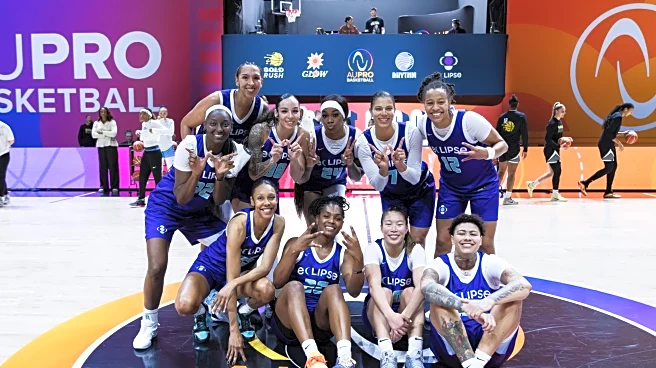What's Happening?
Urban women in Bangladesh are experiencing a significant decline in manufacturing employment, particularly in the ready-made garment (RMG) and textile industries. Despite overall growth in female employment, urban areas have seen a drop from 45 lakh to 39 lakh, with the participation rate falling from 33% to 23% since 2013. The shift towards more capital-intensive production and automation has led to job losses, especially for women in low-wage, entry-level roles. Skill disparities further exacerbate the issue, limiting women's ability to transition to new sectors.
Why It's Important?
The decline in manufacturing jobs for urban women highlights the challenges of automation and skill gaps in the workforce. It underscores the need for targeted interventions to support women's employment and address structural barriers. The situation reflects broader global trends, where technological advancements impact job availability and require workforce adaptation. Ensuring equitable access to training and employment opportunities is crucial for economic development and gender equality.
What's Next?
To address the decline in manufacturing jobs, Bangladesh must focus on diversifying its economy and providing reskilling initiatives for women. Expanding social infrastructure, such as childcare and extended school hours, can support women's participation in the workforce. Policymakers and businesses must collaborate to create a more inclusive and sustainable economic environment, ensuring that women have the freedom to choose their career paths and contribute to the nation's growth.
Beyond the Headlines
The situation in Bangladesh highlights the ethical and social dimensions of economic development, where gender equality and workforce inclusion are paramount. It raises questions about the role of policy in shaping labor markets and the importance of creating diverse opportunities for all segments of society. Addressing these challenges requires a holistic approach, considering cultural, economic, and social factors to foster a more equitable and prosperous future.










